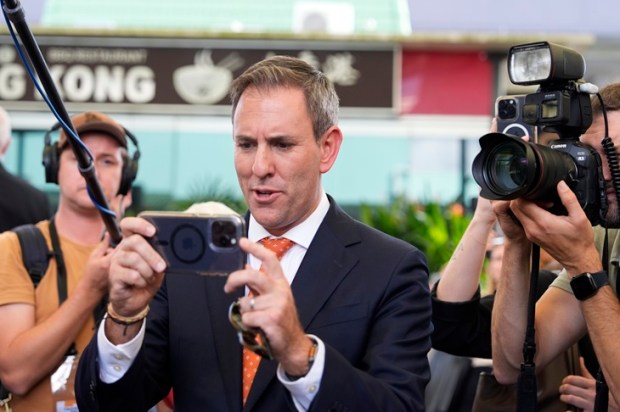It is strange how the unelected see themselves as the elect… Recently the Board of Winston Churchill Memorial Trust waded into politics making a statement on the referendum. I emailed the CEO indicating my displeasure, reminding the Board they have authority to ensure the effective functioning of the Fellowship, not to advocate for any political cause or issue. To the CEO’s credit, I got a phone call.
The CEO outlined a belief that the referendum isn’t political because it doesn’t involve voting for or against a political party. I pointed out there is nothing more political than a referendum to change the Constitution. Also, whether constitutional change is a positive measure, will benefit Indigenous people, promote public good, and is actually the moral thing to do, is the very issue at question to be settled in the referendum, which is to say through the democratic process.
The CEO didn’t accept my reasoning and pointed out that nowhere in the statement does it explicitly state to vote ‘yes’. That’s correct. But the following are quotes and I’ll leave people to come to their own conclusions.
‘Through the awarding of Churchill Fellowships, we are staunch advocates for the power of listening, reflecting, and engaging with others. …Churchill Fellowships provide a platform for many Australians who otherwise might not be heard. The power of having a voice and being heard has paved the way for many Churchill Fellows to innovate and implement initiatives, programs, and services that improve the lives of all Australians, including our most marginalised people.’
Below is the statement in full:

Screenshot
Considering the statement specifically outlined what the Board believes the most important issues are for voters to focus on and the language, it is difficult to accept the assertion the Board were not trying to influence people’s vote. Even if the Board’s only aim was to encourage people to become informed then they are still guilty of two sins; presumption, in assuming that Fellows, being unwashed deplorables, need reminding by their betters that referendums are important, and also of arrogance believing that they, being both great and good, are the right people to do the reminding.
The CEO stated he and the Board were pressured to explicitly make arguments for the ‘yes’ case. He didn’t say who the individuals were, but pointed out that the patrons of the Trust are both prominent activists for the ‘yes’ case. Regular elections are also important, but the Board has never issued a statement trying to guide thought on what any election issues. True impartiality would be remaining silent. The CEO said that remaining silent was equivalent to a vote for the ‘no’ case. This was a clear admission the intention and aim of the statement was to advocate for a ‘yes’ case and revealed the appeal to impartiality was disingenuous. If he believes remaining silent is advocating no, then speaking out is advocating yes. Suffice to say after a forthright exchange of opinions about the appropriateness and actual purpose of releasing the statement we agreed to disagree.
The Trust’s constitution has a single purpose ‘perpetuate and honour the memory of Sir Winston Churchill through the awarding of Churchill Fellowships’. There is a provision in the Charities Act that forbids partisan politics as a charitable purpose. Advocacy in the referendum may not be party political, but there are both ‘yes’ and ‘no’ cases, so it is partisan. Using weasel words such as ‘the power of having a voice’ is political because whether or not Indigenous people need a separate voice is the entire issue. It conflates voice with solution and the two are not the same.
Why do I care? I’m a Churchill fellow. The integrity of the Trust is really important to me. I’m not just talking about the legacy of Sir Winston but the Trust as an institution. It doesn’t matter if Board members believe the cause is noble or even if everyone on the current board and the patrons approve because it serves a political goal they all agree with. Making this statement is prejudicial to the interests of the Trust and arguably the Board has failed to comply with the provisions of the constitution. I’m not attacking the Trust, the CEO, or even the Board, although it will feel like that to them. I’m actually trying to protect them from themselves and uphold the aim of the Trust.
I care deeply about Indigenous issues. My fellowship was about the police response to mental health crisis situations, with a focus on Indigenous cultural competence. I applied because I worked for many years as a police officer in the Torres Strait and Cape York. There were waves of suicides in each community. It is physically unpleasant work cutting hanged people down and hosing blood and brain off walls. It affects a chap. It was after attending a particularly public suicide in a Cape York Indigenous community that I applied for my fellowship to do something to stop the tragic and unnecessary waste of human life and potential. I’m forever grateful for Sir Winston’s foresight and the hard work of those in 1965 who raised the money. They were disproportionately returned service people. I’m grateful to those who donated and board members since then who have protected the legacy of Sir Winston’s reputation and the Trust.
Reading the revisionist histories, attacks on Churchill and the British Empire on the Trusts’ webpage you wouldn’t think the aim of the Trust is to celebrate and revere Churchill, but to bury him. The simple fact is for all their failures, shortcomings, and faults both Sir Winston and the Empire he served contributed greatly to the betterment of all of human history. I would not associate myself with a Trust that holds the name of someone I scorn. Like Winnie himself, I fail and falter, but I do my incompetent best to not be disingenuous or hypocritical.

























